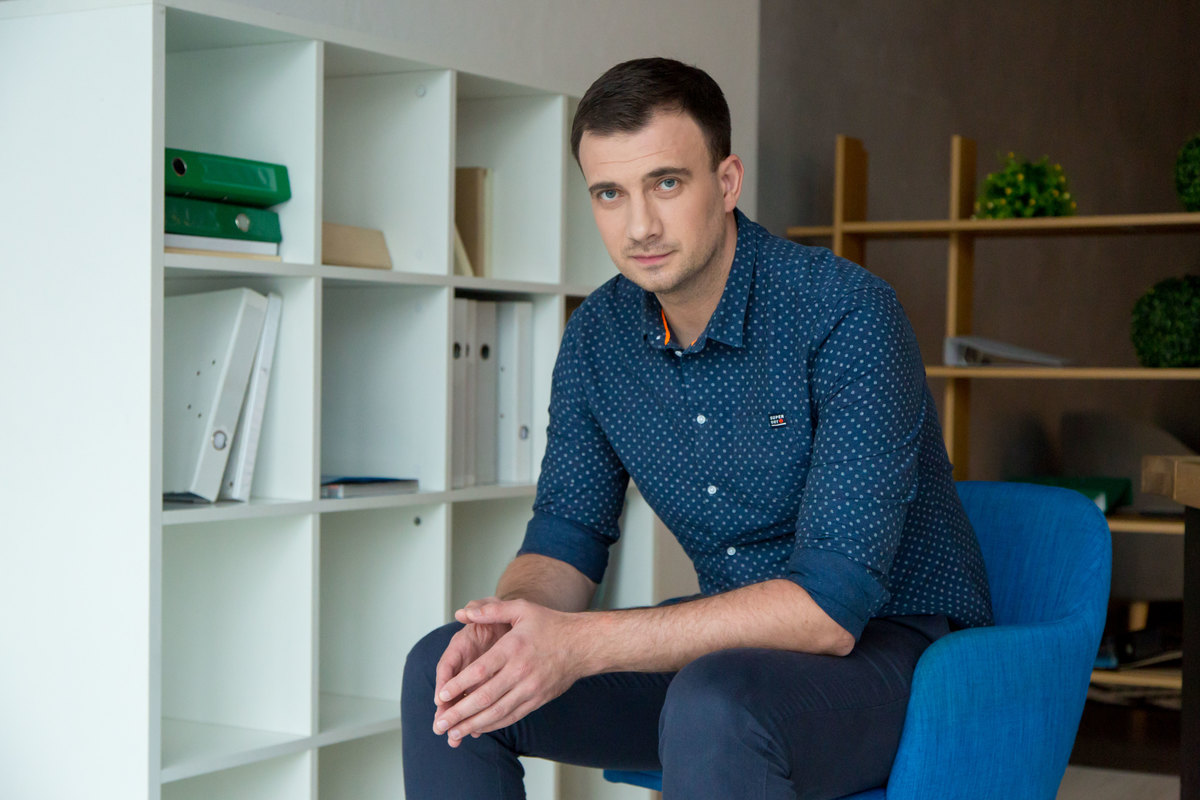
Design is not about logos, sketches, and layout. Design is about emotions that the user experiences. The new guest of the podcast, Ivan Rogovchenko, Chief Design Officer at TECHIIA holding, tells Denis Lavnikevich why the position of Design Director is needed in large companies and what processes he needs to establish.
Denis Lavnikevich: The situation is a bit unusual. A technology holding, an IT company, and the designer is on the board of directors. Many used to perceive designers as regular staff that is drawing logos, typesetting, etc. But you are on the managing position and are responsible for a significant share of business performance. How did it happen?
Ivan Rogovchenko: We used to have a lot of resources with only a few niches occupied, and any new product with some functionality was already considered useful. New car, new furniture and so on. But the more the world developed and the more the assortment of everything grew, new product features have become addictive to users and induce additional emotions. Design is an integral part of any product, service, which allows you to build an emotional connection between a brand, a product, and a person. The more competitive the market, the more important this connection. Because functionality and quality are already important by default. And companies compete in design.
Denis Lavnikevich: Subsequently, here is my first question. Here and there I read about the fact that children and adults are online and using apps, and design is the one to blame. The products are made so attractive and interesting that they became better than the real world. I think this is already detrimental for people, for example, in China, there are camps for treating gaming addiction. What do you think of it?
Ivan Rogovchenko: Addictions have been all of the time, this is human nature. Any activity can be addictive. Moreover, to be honest, all that you are talking about is a response to demand. Our life has changed. Almost everyone has no free time and no energy no matter what. Many people have demand for some easy satisfaction, quick rest, distraction. People relax as they can - games, movies, etc. People need a very quick way to escape from overload. Designers do not do the most manipulative things on purpose. I do not protect them, there are different designs and products, but in general, the situation is this - an answer to the demand.
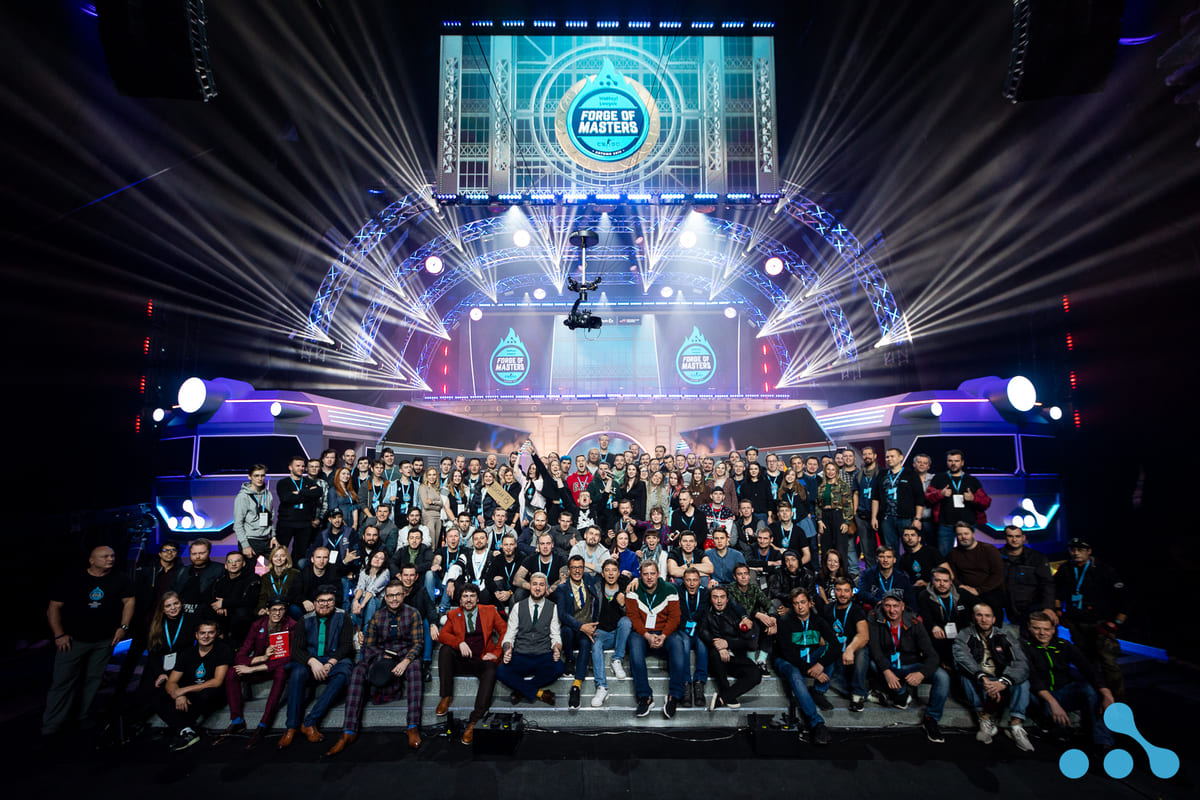
Denis Lavnikevich: In addition to what you said. What is your personal assessment of how computer games bite off the cinema audience?
Ivan Rogovchenko: I don’t have exact numbers, but we can recall the statement by the head of Netflix that they compete with PlayStation, sports, PornHub, etc. This means that all this is entertainment and they have an adjoining audience. Because yes, some parts of the audience every company is taking from each other.
Denis Lavnikevich: Is your position of Design Director in the company unique for Ukraine or are there any colleagues?
Ivan Rogovchenko: A similar position exists in LUN, PetCube, and in a number of companies. There is still a very close position as Head of Design, but as far as I know, it does not imply participation in the board of directors.
Denis Lavnikevich: There are some KPIs in your work. How can a design be measured and its feedback in numbers for services, products?
Ivan Rogovchenko: I would start this answer with “what design is in an IT company”. When we talk about design, we talk about managing all the points of interaction that a brand has with customers. This is design, copywriting, technology, and marketing. In addition, the design is about the convenience of interaction, and not just the artistic component. This is the user experience. You can not say that you did just some part and the money flow increased. Design is a link in a large chain of work. From setting a goal, studying what marketers do, up to testing products, and all this turns into some kind of scenario. And we measure the effectiveness of all such chains, not individual parts. If everything works well, then efficiency increases. I have plans and techniques that I want to implement in order to isolate the effectiveness of a particular design. In general, the methods are different, but they all are not completely perfect.
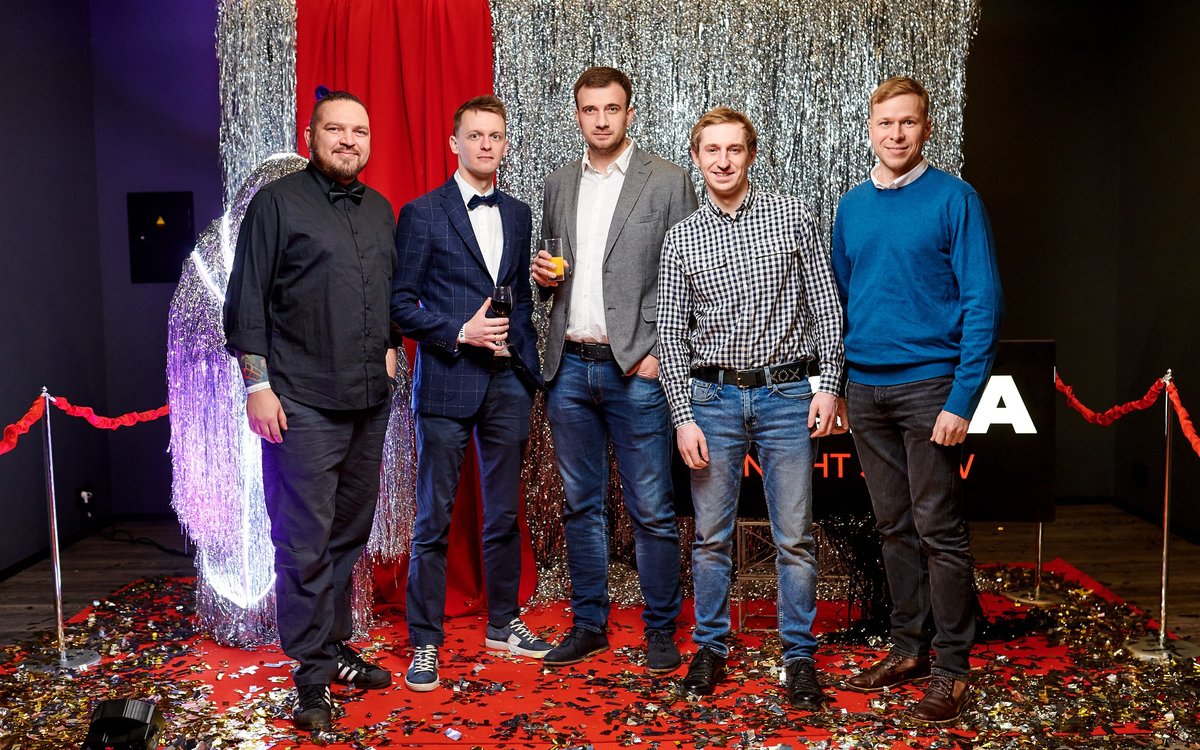
Denis Lavnikevich: How many designers are at TECHIIA?
Ivan Rogovchenko: There are about 40 people in the entire holding. About 1/20 of all employees. We have a lot of media products. For example, WePlay! Esports company has the largest expertise and requires designers from all areas.
DL: In many CIS countries, young people are dreaming about getting into IT. The main requirement for developers is a mathematical mindset, technical education, etc. Designers are not very fittable here. Based on your experience, what are the chances for a person who wants to make a career as a designer to work in IT? What talents and skills will be in demand here?
IR: Most of the designers that I have in mu surrounding are techies. I was a developer myself and technical education helps a lot. The design needs to be clearly separated from creativity. Creativity is some kind of manifestation of the author at the moment regarding something. Design is a work that helps to achieve certain goals for the customer, for the consumer. Therefore, the work is quite engineering. Whether it is a store sign or any digital product. Therefore, engineers and technicians in the design are very valuable. The main skill that will help to work in the IT industry of Ukraine is a slight discontent with how everything happens here. We have complex banks, complex transportation, interaction with government agencies, etc. In addition, curiosity and a desire to understand everything are important, trying to understand how it works. Then lay some fundamental skills for understanding color, typography, which have long been understood, formed, there are many books and so on. Understanding and interacting with digital products. This is all going to a ball of skills that allow the designer to develop in IT.
DL: Can we say that in the case of the TECHIIA holding, the first task of the designer is to optimize reality and make it more perfect?
IR: Yes, this is a perfect phrase. The constant struggle with the imperfection that surrounds us. A designer, like any other engineer, takes something imperfect and makes it better.
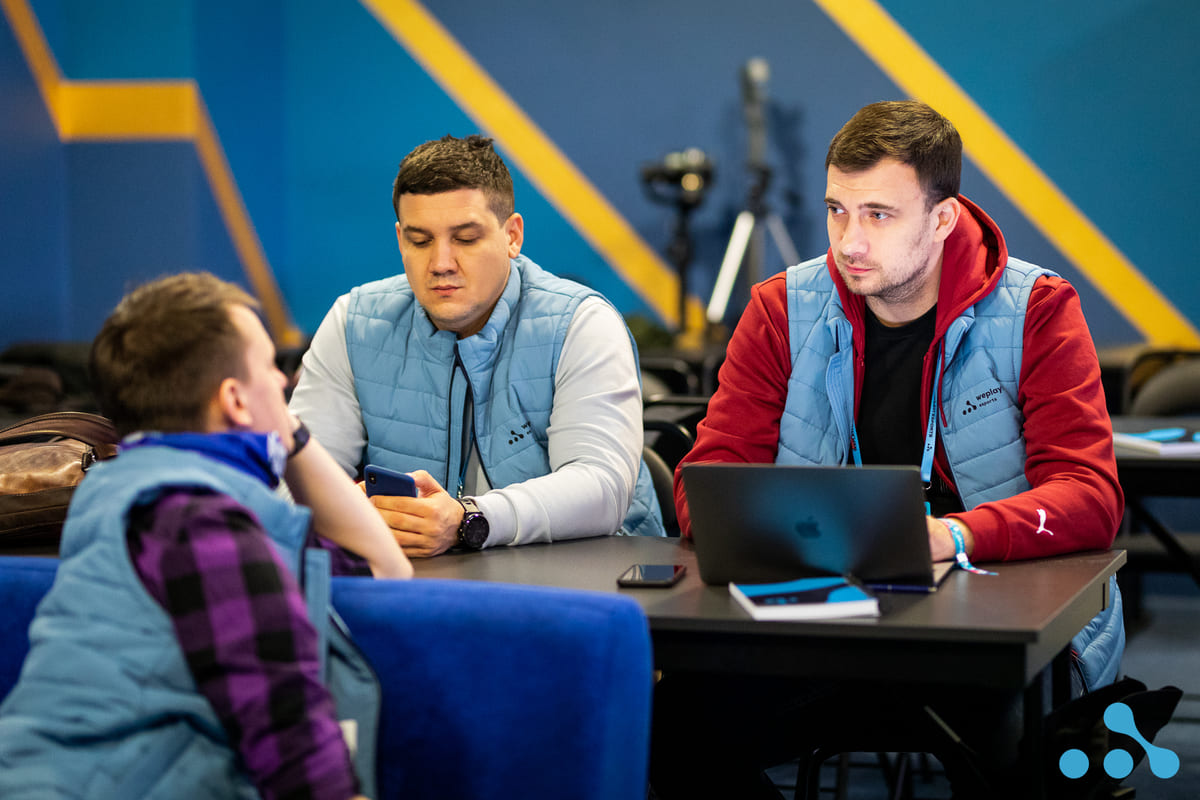
DL: One of the main areas of TECHIIA holding is esports. And the media is also about esports, but you are not a game dev, what is the role of the designer in the company then?
IR: If we are talking about WePlay! Esports, then this is a moderately classic media company. This implies a huge number of user interaction points. We have an online platform with news, games. The second part is tournaments for which branding, design, etc. are being created. Distributed on media platforms like YouTube and Twitch, social networks. In order to provide the user with consistency and ease of interaction, so that the brand behaves predictably and the user always knows what to expect, that’s what designers are need for.
DL: When a product decision is made, when it is released, optimized, and so on, how much are your word-final matters in making creative decisions and how much of an influence can other managers have?
IR: The people’s taste is getting better and better. There are more and more convenient, functional, and beautiful things that educate us. And people generate great ideas. It is very important to set up the correct feedback channel and we don’t have any complete solution from one person of how everything should be. Management determines the strategy, roughly explains how they see the product. We have an Art Director, a Creative Director, and I do not influence their creative decisions. My task is to organize working conditions for them in which they can generate good creative solutions. As for the other participants, we have a fairly close-knit team, which was formed by the founders and everyone is good in design. I can express my opinion about marketing, a product, or about some engineering components from the height of my experience. But also I am happy to have someone else’s opinion about the design. We don’t have totalitarianism.
DL: How many IT companies, especially product companies in Ukraine, should hire a Design Director or similar specialist to improve their products? How would it help them? Because, as far as I know, the priorities are on functionality or marketing. How often can a designer help an IT product company?
IR: I would exclude startups because they have a slightly different story. The task at first was to give some kind of working technology, get investments, and grow further. Each startup should be considered separately. If we are talking about companies that have financing and clients, and if this is a B2C project, then I think that a qualified designer is required in a team. And if you need several designers because the product consists of several different parts - an application, a website, some other communication channels, then there should already be a person who manages the overall design, ensures consistency. Manages and consolidates designers who work for the company. If this is B2B, then it has its own specifics - you need to know your competitors, market, audience, and so on.
DL: How do you connect with your audience?
IR: We operate in such areas that communication is very easy to get. People write us themselves. This is mainly esports and the community is active there, we receive feedbacks in private messages, on social networks, from other influencers, etc. We have support teams, the team that conducts surveys, drafts, and collecting feedback. But users themselves help us a lot.
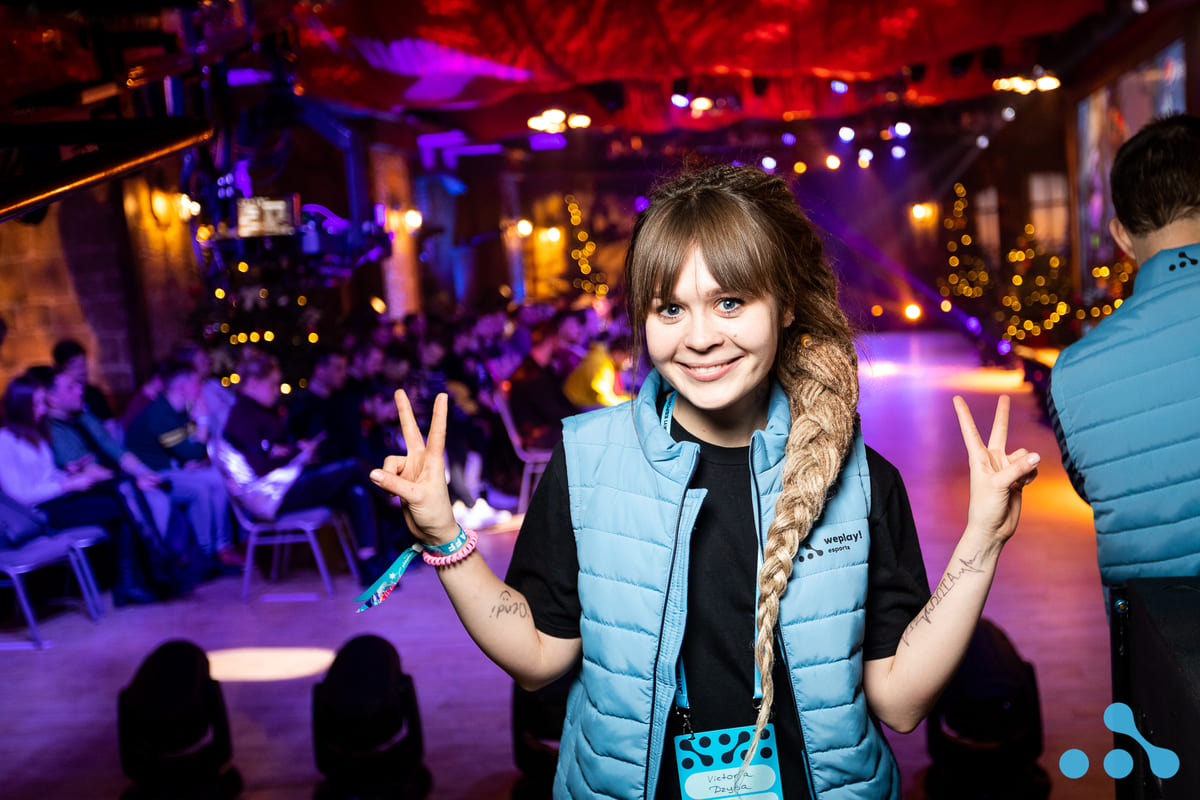
DL: We had Viktoria Dzyba as our guest, Chief HR Officer at TECHIIA holding, she is responsible for the staff. But, as far as I know, you yourself select the designers who will work for you. How do you select new people and how much of your part in this?
IR: At the moment, my part is not that big, but six months ago I took a very active part in the selection of designers because most of the people who came were from my circle of friends at Projector, social networks, etc. Victoria and I help each other. The final decision, of course, is on me, the Creative Director, or the Art Director.
DL: What challenges does a company such as the TECHIIA holding face in the design segment? What are the most serious problems?
IR: Well, I can’t say that these are problems, they are the specifics of the market itself. This is the speed that the market requires. All products and solutions should be implemented literally in no time. Sometimes we do not have time to conduct any additional drafts or testing. For example, the WeSave! Charity Play tournament we prepared in a week, so there was no additional testing. After that, there will be other tasks and we will collect the maximum feedback from users we can, and that’s all. The speed with which decisions must be made is a challenge. And we must learn to work with this.
DL: Now everyone is working from home, how is it for you? What is the effect of quarantine?
IR: We have all the companies switched to work-from-home mode. We conduct meetings online. For the IT sector, working from home is not such a big problem. Moreover, we have offices in other countries and we are used to remote work. The only thing is that people need time to switch to a new regime and do the same amount of work that they did in the office. Someone has children, someone gets up later, someone wants to watch a movie. This transformation took about 3-4 days. And a WeSave! Charity Play tournament we were creating in parallel to this transformation.
DL: Last question. The year began with a crisis and everybody predicts a big collapse of the economy. In your area, what are your forecasts for this year?
IR: If we talk about the IT sphere and design, then we will try new models of work, we will try the remote work, perhaps this will somehow affect the functionality of the products that we release because people mostly spend time at home. My forecast is this - I do not think it will end quickly, so we need to adapt for some time. The advantage of the IT sphere that it does not stop and makes it possible to continue creating. If we are talking about a stressful situation that allows us to work further somehow, then this is good. Today I see nothing too negative that affects the work.
You can read the on the "Dsnews" website.


